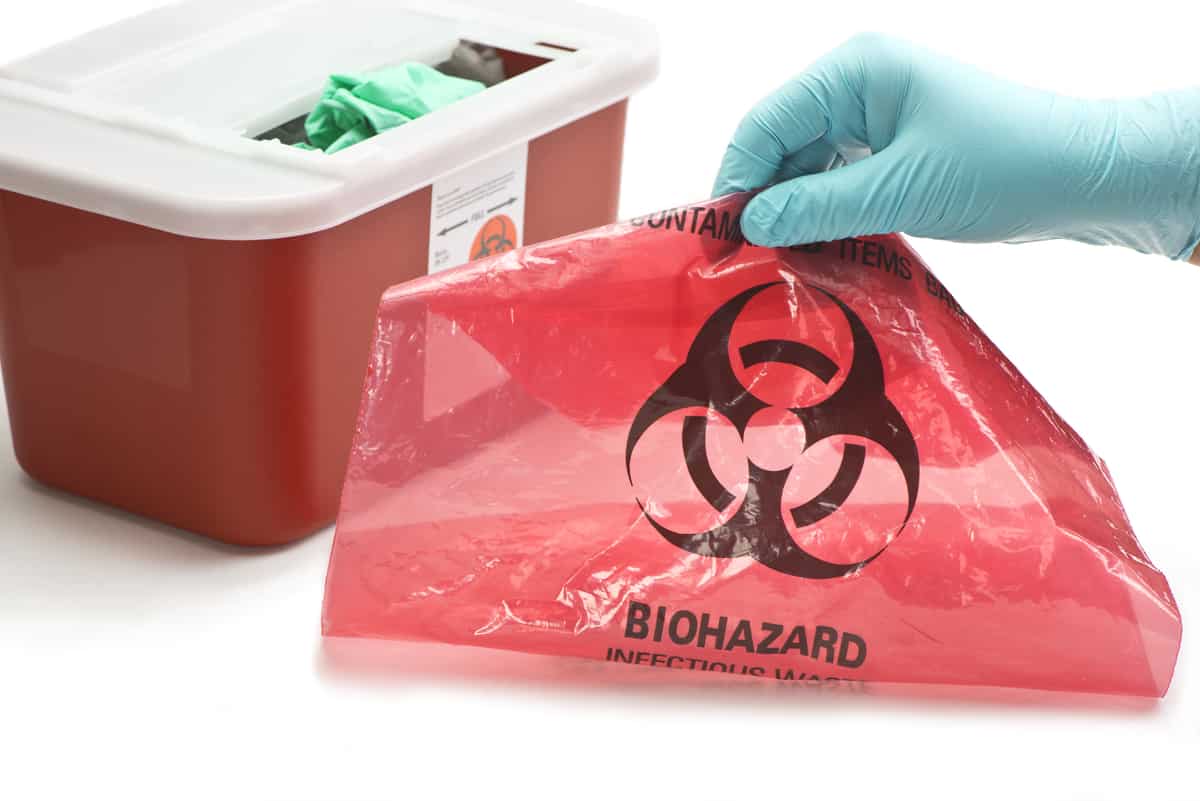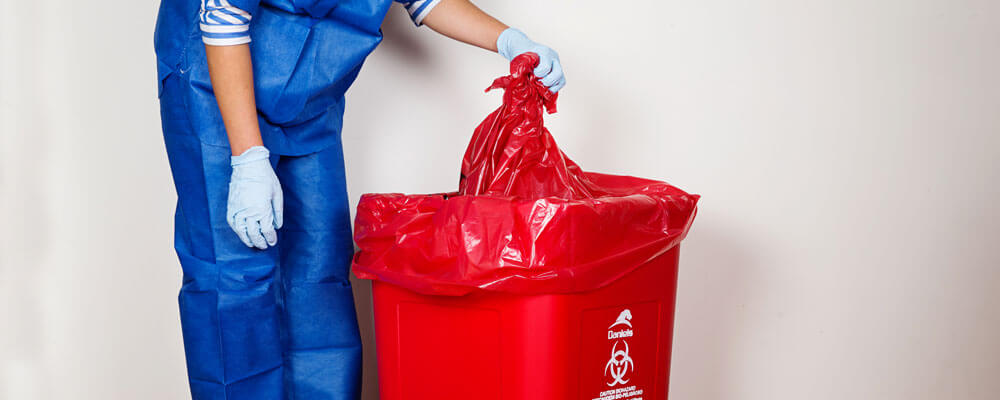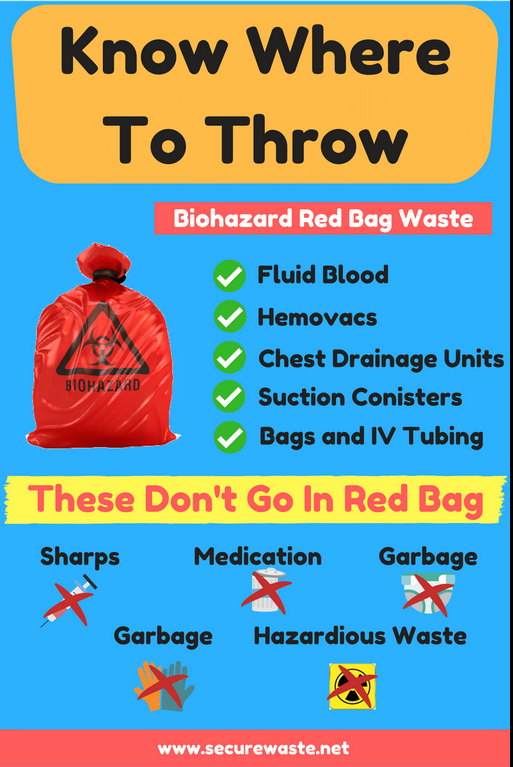Community Treatment: Seamless and Reliable Medical Waste Removal Near Me
Community Treatment: Seamless and Reliable Medical Waste Removal Near Me
Blog Article
Remain Ahead of Regulations: Specialist Suggestions on Medical Waste Disposal
In a globe where the medical care industry is continuously developing, it is necessary for medical facilities to remain in advance of guidelines when it comes to the proper disposal of clinical waste. From recognizing the different categories of medical waste to executing the best collection and segregation methods, this discussion will offer actionable suggestions and valuable insights to assist centers remain ahead of laws in the ever-changing landscape of clinical waste disposal.
Comprehending Clinical Waste Categories
Comprehending medical waste groups is important for correct disposal and administration in health care centers. Medical waste refers to any waste produced by health care activities that may position a risk to public health or the environment. It is critical to classify medical waste accurately to ensure its risk-free handling, therapy, transportation, and disposal.
There are numerous classifications of clinical waste that health care centers require to be accustomed to. The most common classifications include transmittable waste, pathological waste, sharps waste, pharmaceutical waste, and chemical waste. Each category has particular standards and guidelines for its correct administration and disposal.
Infectious waste consists of products contaminated with blood or other physical liquids, such as handwear covers, gowns, and research laboratory cultures. Pathological waste refers to human tissues, body organs, or body parts that require unique handling and disposal. Sharps waste consists of utilized needles, syringes, and various other sharp items that can cause injury and transfer infections. Drug waste consists of run out, unused, or infected medications that need cautious handling and disposal. Last but not least, chemical waste consists of solvents, disinfectants, and various other chemical materials used in medical care centers.
Staying Up-To-Date With Regulatory Changes
Staying present with regulative modifications is essential for medical care centers to guarantee conformity and appropriate management of clinical waste disposal. medical waste removal near me. With policies frequently developing, it is necessary for healthcare centers to stay current to avoid fines, penalties, and possible damage to the environment and public health and wellness
To stay ahead of regulative modifications, medical care centers should establish a system for surveillance and monitoring updates. This can be done by signing up for governing e-newsletters, going to conferences and workshops, and actively getting involved in sector associations. Additionally, centers ought to designate a personnel or group in charge of staying notified and sharing info to relevant stakeholders.
Normal communication with regulatory companies is also vital. Medical care centers ought to develop connections with neighborhood, state, and government agencies to ensure they are conscious of any kind of adjustments in guidelines that may impact their waste administration techniques. This can be done with normal conferences, engagement in public comment periods, and aggressive involvement with regulatory firms.
Furthermore, medical care facilities ought to consider partnering with waste administration firms that concentrate on medical garbage disposal (medical waste disposal services with WasteX). These companies are usually well-versed in the newest guidelines and can provide advice and support to make certain compliance
Implementing Proper Collection and Partition Approaches
To successfully manage clinical waste disposal, health care facilities need to establish appropriate collection and partition methods in conformity with regulatory standards. Applying these approaches makes sure the safe handling and disposal of potentially unsafe materials, shields the environment, and minimizes the risk of injuries and infections to health care workers and the public.
Proper collection and partition methods include making use of assigned containers and labeling systems. Health care facilities should offer plainly classified containers for various kinds of medical waste, such as sharps, contagious waste, pharmaceutical waste, and non-hazardous waste. These containers need to be color-coded and plainly significant to prevent complication and advertise very easy identification.
In addition, healthcare centers should educate their team on the right procedures for gathering and setting apart medical waste. This includes educating them on the different sorts of waste, the appropriate containers to make use of, and the importance Visit Your URL of adhering to policies and standards. Regular training sessions and correspondence course ought to be performed to make sure that team members continue to be up-to-date on finest practices.
Moreover, healthcare facilities need to establish a system for regular collection and disposal of medical waste. This may entail partnering with licensed waste administration firms that specialize in medical waste disposal. These firms will certainly ensure that the collected waste is moved and thrown away in conformity with regulatory demands.
Selecting the Right Disposal Methods

Incineration is just one of one of the most typical and efficient approaches for taking care of certain types of clinical waste, such as pathological waste and sharps. It includes the controlled combustion of waste at high temperatures, lowering it to ash. However, incineration can launch unsafe contaminants right into the air and contribute to air pollution.

Chemical treatment includes the usage of chemicals to disinfect and counteract the waste. Microwave treatment makes use of microwave energy to warmth and decontaminate the waste.
Ensuring Compliance With Paperwork and Training
After very carefully considering the suitable disposal techniques for medical waste, healthcare facilities have to ensure conformity with laws and minimize environmental influence by executing effective documentation and training treatments. This action is vital in preserving a secure and lasting environment for a knockout post both medical care workers and the public.

Medical care workers that deal with clinical waste needs to receive suitable training on waste partition, managing, and disposal procedures. By providing comprehensive training, medical care centers can encourage their team to make educated decisions and reduce the danger of incorrect waste disposal.
Conclusion
In final thought, remaining click for source ahead of regulations in clinical garbage disposal is vital for healthcare centers. medical waste removal service. Comprehending the different groups of medical waste, remaining updated with regulatory modifications, executing correct collection and segregation methods, selecting the suitable disposal techniques, and guaranteeing compliance with documentation and training are all crucial steps. By following these standards, health care companies can efficiently handle and get rid of of clinical waste in a liable and risk-free manner
From recognizing the various categories of clinical waste to implementing the right collection and partition techniques, this conversation will offer valuable insights and workable tips to aid facilities remain ahead of guidelines in the ever-changing landscape of medical waste disposal. - medical waste disposal services with WasteX
The most common classifications consist of infectious waste, pathological waste, sharps waste, pharmaceutical waste, and chemical waste. Medical care centers should provide clearly labeled containers for different kinds of medical waste, such as sharps, transmittable waste, pharmaceutical waste, and non-hazardous waste. Medical care facilities ought to establish a comprehensive system to tape and track all aspects of medical waste disposal, including types of waste generated, amounts, and disposal methods made use of. Health care employees that handle clinical waste should receive suitable training on waste segregation, managing, and disposal procedures.
Report this page